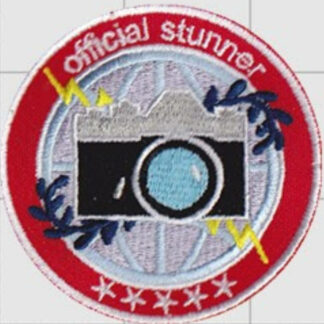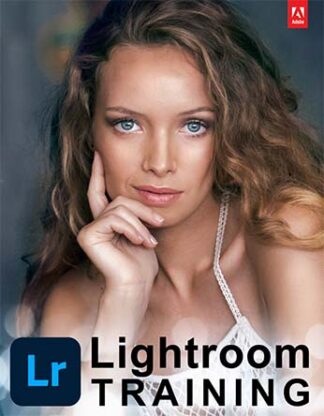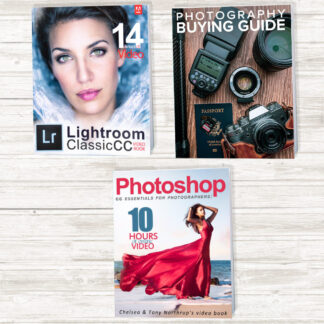Lenses should be matched to your sensor size. If you have a Canon or Nikon DSLR, use the following table to determine which type of lens to buy for your DSLR.
| Sensor Type | Lens Type | Sample Lens |
| Canon APS-C | EF-S | EF-S 17-85mm f/4-5.6 IS |
| Canon full-frame | EF | EF 100-400mm f/4-5.6 L IS |
| Nikon DX | DX | 18-105mm f/3.5-5.6G ED VR AF-S DX |
| Nikon FX | (not indicated) | AF-S Nikon 24-70mm f/2.8G ED |
If you have a Canon APS-C DSLR, you can attach a full-frame Canon EF lens. However, the picture will be cropped by 1.6X, which is known as the focal length multiplier. Everything will look fine through the viewfinder, but you’ll be zoomed in 60% more than you would be with a Canon full-frame camera body. If you’re using a wide-angle lens to shoot at 24mm, and the camera uses an APS-C sensor with a 1.6x crop factor, your picture will be at the not-so-wide-angle 38mm (24 x 1.6 = 38). You cannot use Canon EF-S lenses with a Canon full-frame body. The following table shows Canon body and lens compatibility.
| Canon EF-S | Canon EF | |
| Canon APS-C | Ideal | 1.6X crop |
| Canon Full-frame | Not functional | Ideal |
If you have a Nikon DX DSLR, you can attach a full-frame Nikon lens. The picture will be cropped by 1.5X, effectively zooming everything in by 60%. Unlike Canon, you can use a Nikon DX lens on a full-frame Nikon FX camera body—however, because the lens was designed for smaller sensors, your pictures will be at a lower resolution. The following table shows Nikon body and lens compatibility.
| Nikon DX | Nikon Full-frame | |
| Nikon DX | Ideal | 1.5X crop |
| Nikon FX | 62% smaller pictures | Ideal |
For most people, crop factor isn’t a concern at all. Just buy lenses designed for your camera, or use the lens that came with your camera. You can still get ultra-wide-angle lenses—for example, Canon makes a 10-22mm lens that is equivalent to a 16-35mm full-frame ultra-wide-angle zoom. Sites such as bhphotovideo.com have separate categories for DSLRs with Canon APS-C or Nikon DX sensors and full-frame DSLRs, so as long as you’re aware of your sensor type, you can get the right lens. The only types of lenses that Canon and Nikon don’t create for compact cameras are the professional super-telephotos. Canon and Nikon both make 600mm f/4 super-telephoto lenses for full-frame cameras only because if you’re willing to spend $8,000 on a lens, you’re probably also willing to spend a few more bucks on a full-frame DSLR. You can still use these super-telephotos or any full-frame lens on a DSLR with a crop factor, but you’ll be losing part of the image projected by the lens, meaning you’re paying for something you aren’t using and carrying around unnecessary glass.





